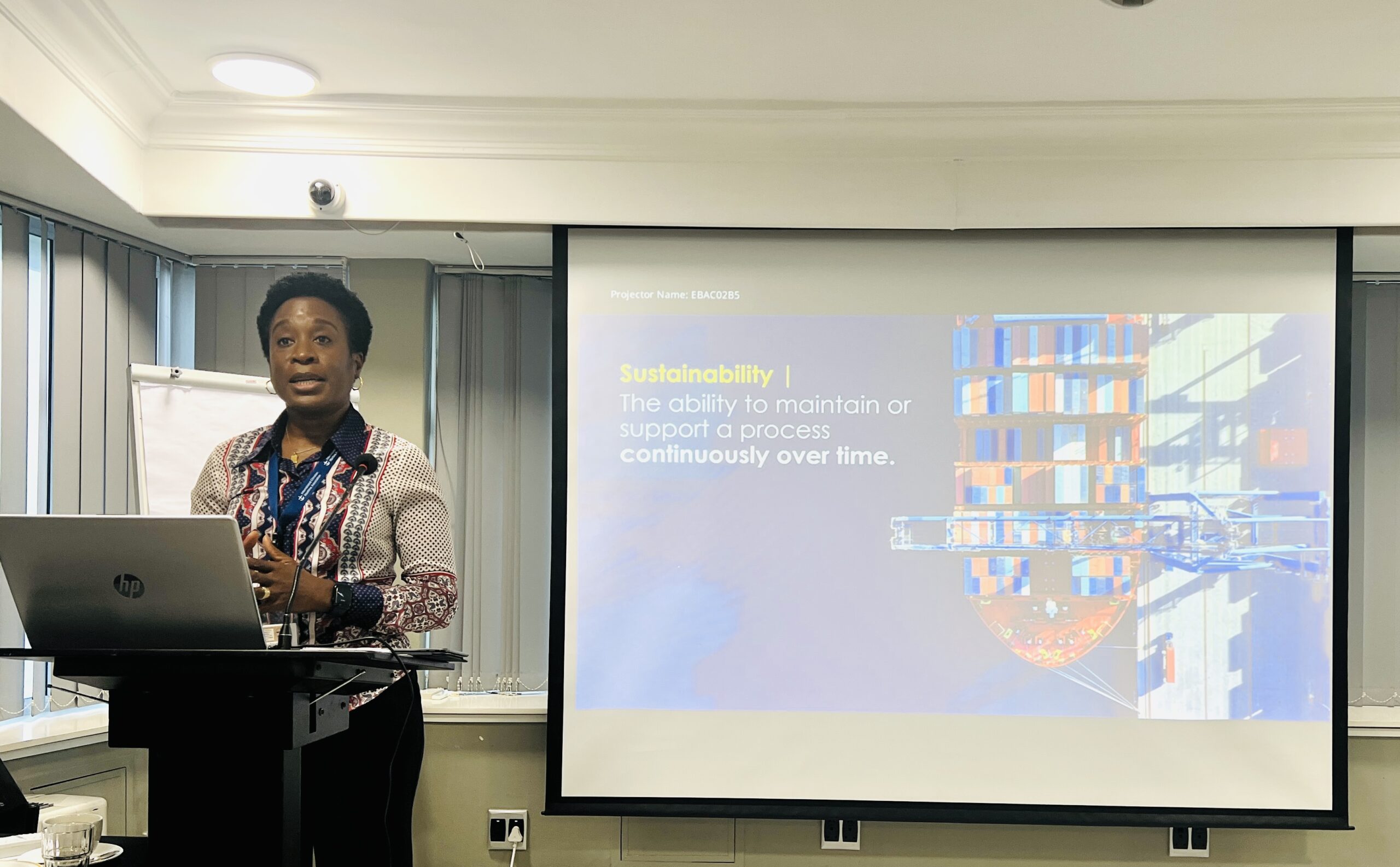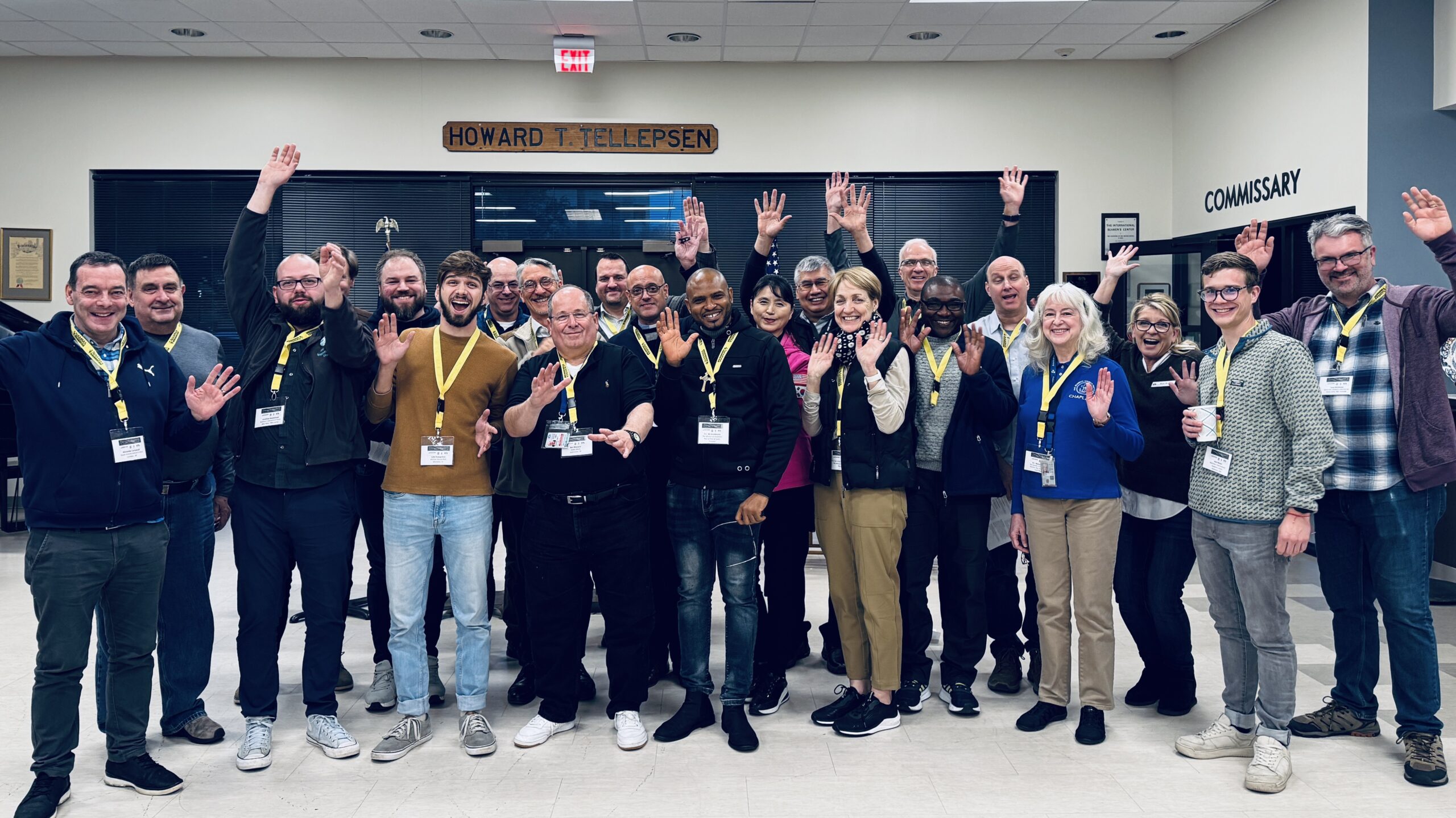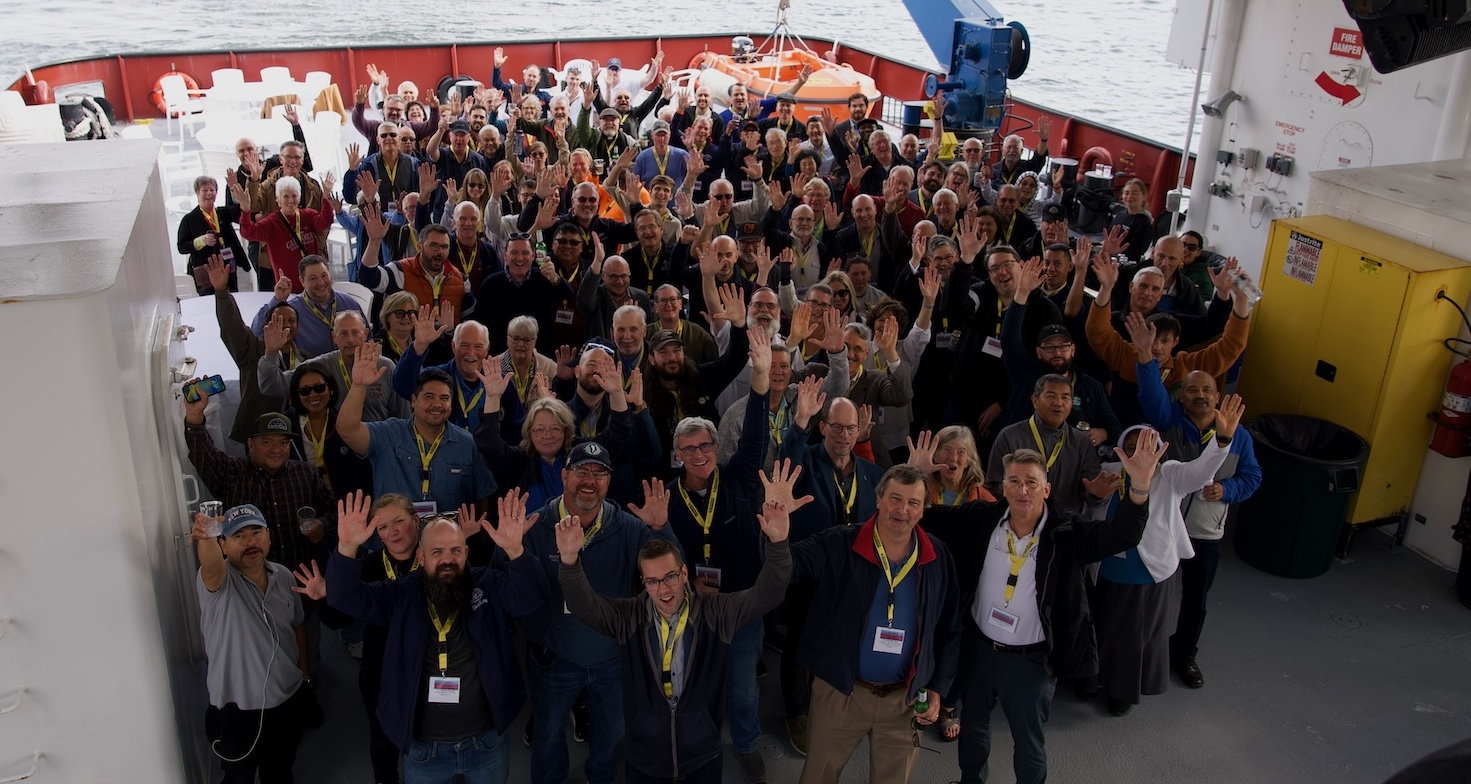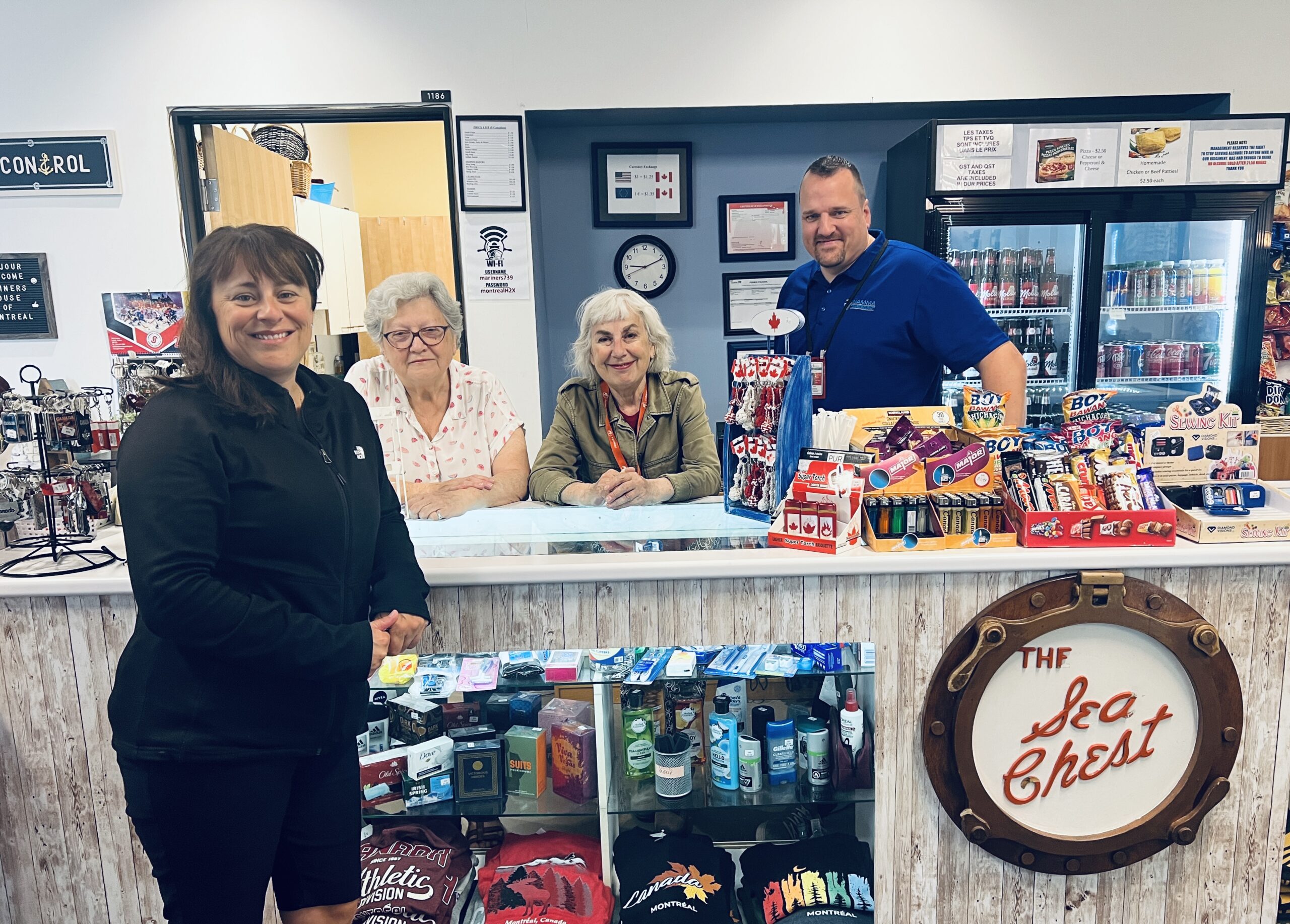At the ICMA Africa Regional Conference in Durban, South Africa, Tomi Toluhi, COO The Mission to Seafarers, reflected on the conference theme with thoughts from on Luke 5, 33-39. A transcription of audio recording below.
Throughout the course of this conference, we are reflecting on the topic of adapting to change and sustaining our work. Cedric [Rautenbach] shared one definition of sustainability yesterday, which I will draw on for our reflections this Evening. “Sustainability refers to the ability to maintain or support a process continuously over time.” Now those three words “continuously over time” really stood out to me because they speak about longevity, the longevity of our work, our ability to be there year after year for seafarers.
Doing something year after year has a tendency to encourage us to settle into patterns, habits and a set way of doing things, because that is our nature as humans. We are creatures of habit. What we often don’t consider is that, paradoxically, the thing that enables our longevity, that is our ability to be there continuously for seafarers year after year, is actually our adaptability, our willingness to change. Sometimes, year on year, show at least the two need to go hand in hand. I mean, let’s be honest, none of us really likes change. Change is uncomfortable.
And that takes us back to our passage for today, where Jesus is encouraging those present and encouraging us to do what we often don’t like to do, which is to be adaptable and to be open to change. So looking at this, this story, the Pharisees and the teachers of the Lord came to Jesus, because what his disciples were doing was a break from tradition. They were changing things. John’s disciples fasted and prayed. The disciples of the Pharisees fasted and prayed. When your disciples go on eating and drinking.
So in other words, the question they were asking Jesus was, why are you changing things?
The heart of Jesus response to them was simply this, it’s all about timing. It’s about timing.
What is appropriate in one season may not be appropriate to the next season. The friends of the bridegroom don’t fast when he is with them, or the time will come when they do. So it’s all about timing.
And then Jesus used two illustrations to explain why change at the appropriate time matters. And both of those parables demonstrate to us what happens when we don’t adapt to change.
Things become unsustainable. Over time they are unable to continue. The garment is ruined.
The old wineskin bursts and the new one is lost. Sustainability requires change of us, and Wimpie [Van Schoor] and Jaco [Leeuwner] spoke to that brilliantly earlier on in their presentations. So looking at the the two parables that Jesus used, the first one in verse 36 he says, he says he told them this parable, no one tears a piece out of the new garment to patch an old one. Otherwise they would have torn the new garment, and the patch from the new will not match the old.
Sometimes the things that we do in trying to create results in our ministry often amount to tearing a piece of a new cloth and attempting to use it to patch an old one, maybe in the past, what we were doing was really effective.
And then God gives us the new picture of how we can be more effective, the new thing that God wants to do with all the surrounding instructions for change can be likened to a brand new piece of cloth. However, if you’ve been used to doing things a certain way, seeing the need for change can be difficult, so we assume that God will use the old formula to create a new result. Maybe it’s trying to get us to change our structure or our systems or our attitudes or our habits. Maybe he’s introducing us to a new approach to ministry, but we don’t see it because of what we’re already used to.
So what do we do? We carefully cut out the new picture that God has given us from its context, and then we attach it to our own way of thinking, our old attitudes and our old actions. And then we step back and we admire it, and we hope that it looks like a brand new outfit. But that doesn’t work. Jesus says in Mark chapter two and verse 21 no one sews a patch of on shrunk cloth on an old garment, otherwise the new piece will pull away from the old making the tear worse. So God is not calling us to attach new vision to old mindsets, because if we attach a new patch to an old garment, the implications are threefold. And so I think they are threefold.
We spoil the new cloth by cutting a piece from it. The new patch is too much for the old garment to Handle. When you wash it, it shrinks, and then it makes things worse by tearing the old further. And then also there is a mismatch between the old and the new, because they don’t look good together.
So the question is this, what mindset, what attitude, what method, what system is God asking us to change because it does not match what he wants to do next in seafarers ministry?
Now going on to Jesus’ second illustration, which is an interesting one. Verses seven and 13, it says, “And no one pours new wine into old wineskins. Otherwise the new wine will burst the skins, the wine will run out, and the wine skins will be ruined. No new wine must be poured into new wineskins.”
Now, the wineskins that Jesus was talking about were made from goat skin or sheep skin, and when new wine was poured into them, there was a gradual fermentation process that would stretch the stretch the wine skin and expand the skin to its limits. Now, when a wine skin is new, it is pliable. It is flexible. Someone talked about that a few minutes ago. It is adaptable, so it can withstand the pressure of the fermentation gasses that are released on the new wine with time that wine skin becomes dry and brittle, and that’s what Jesus was making reference to. It has been expanded to the maximum of what it can take, and it is no longer flexible enough to withstand the pressure of newness.
So I think the question to ask ourselves is this, are there aspects of the way that we think or the way that we do our work which have become dry and brittle and are no longer able to accommodate the current needs of seafarers? This parable serves as a challenge to me and to all of us to receive change with an inquiring mind that is pliable, that is adaptable and that is open, so that we can accommodate the new ways that God wants to use us in service of seafarers.
So there are emerging seafarer needs that will require a mind shift, an attitude adjustment, a paradigm shift if we’re going to meet those needs effectively? Yesterday, Captain Ian [Hlongwane] challenged us to examine our thinking around what seafarers need most from us in times where they’re facing fatigue from their growing work schedules. Are we expecting that to fit into our schedules and our way of doing things? Or are we open to try new methods? Whatever those might be, we need to constantly be examining whether certain things we do are meeting the current needs of seafarers or the needs we once knew that they had.
Yesterday, also, Cedric [Rautenbach] spoke about crossing the road going outside a comfort zone to meet the needs of seafarers. Could it be that some of the things we are doing, we continue to do, not because they are effective, but because they are comfortable? Jesus alluded to this as he concluded this parable, verse 39 says no one after drinking old wine. Wants the new for they say the old is better. Very often we don’t want the new because the old is familiar. It’s comfortable. So we say the old is better. It’s hard to go from what we know, especially if we feel that it has been working for us, to something that is new, something that is uncertain and that takes us outside our comfort zone.
So let it be our prayer that we leave this conference with fresh vision, new ideas and an open heart to accommodate new things into the rhythms of our ministry to seafarers.





